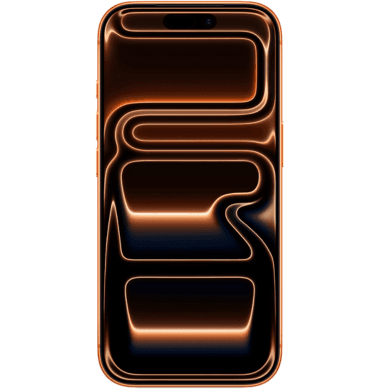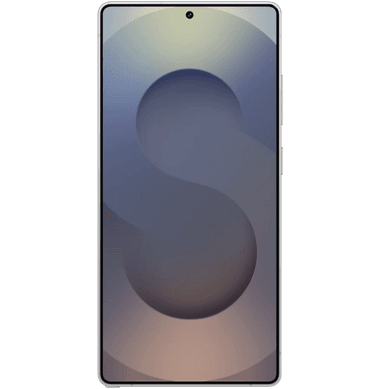Did you know? According to the ACCC's Internet Activity Report, Aussies on average use around 9GB per month on a prepaid plan versus around 19GB on a postpaid plan. Interestingly, Finder's Consumer Sentiment Tracker found that people, on average, get 40GB of data on their plan - meaning they might be paying for more data than they actually need.
What are prepaid and postpaid plans?
In Australia, when it comes to mobile plans, you've got two main options: prepaid and postpaid.
Prepaid plans are exactly what they sound like. You pay upfront, at the start of the month, before you've used any of your mobile services.
Postpaid plans are a bit like your utility or credit card bills - you pay at the end of the month or billing cycle, covering what you've already used.
But there's a catch, and this is where the lines between prepaid and postpaid plans blur.
In more recent years, providers advertising their plans as postpaid actually ask you to pay upfront, similar to what you would do with a prepaid plan.

"These days, I find prepaid and postpaid plans operate pretty much the same way. It used to be that postpaid was always on a contract and prepaid recharges had to be bought from the supermarket. I've tried both in recent years and most have no contract and auto-recharge. So the difference is pretty minimal - I just find the plan with the right price and data for me."
Prepaid vs postpaid plans: What's the difference?
As we've already mentioned, the differences between prepaid and postpaid plans have narrowed.
This makes choosing a mobile plan a lot easier.
| Prepaid plans | Postpaid plans | |
|---|---|---|
| Contract length | No lock-in contract | No lock-in contract the majority of the time - there may be a couple of exceptions but it's rare |
| Payment period | You have to pay upfront | You will either have to pay at the end of the billing cycle or some postpaid plans expect you to pay upfront these days |
| Excess charges | There are no excess data charges | Some providers will charge you for going over your monthly data allowance. However, others will slow your download speeds instead |
| Expiry period | Most common expiry periods include 7-day, monthly, 28-day, 30-day, and long-expiry plans (commonly 90, 180, or 365 days) | Monthly |
| Recharges | Unless you have auto-recharge set up, you'll need to actively renew your plan before it expires | The plan will continue month on month unless you proactively cancel it |
Pros and cons of prepaid and postpaid plans
Choosing between prepaid and postpaid plans will come down to how you use your phone, your budget and what inclusions you're after.
Here's a rundown of the pros and cons of both.
Prepaid plans
Pros
- You pay upfront, so you can't exceed your budget
- Since there's no long-term commitment, there's usually no need for a credit check either
- You can choose the amount of data, calls, and texts you need and change your plan easily if your usage changes.
- Majority of plans include unlimited local calls and texts
- There are a range of plans with different data options, so you can find one that fits your needs perfectly.
- Some providers also offer additional features such as international calls and data rollover.
Cons
- You'll need to top up and pay extra if you run out of data before the next recharge
- A 28-day expiry means you'll pay 13 bills in the year instead of 12
- You won't be able to pair it with a handset repayment plan
Postpaid plans
Pros
- No excess data charges on some plans
- Tend to come with extra perks such as data rollover and international call inclusions
- You'll pay monthly which takes the hassle out of dealing with weird expiry periods
- They can be paired with a handset repayment plan if the provider sells phones
Cons
- Possibility of being hit by excess charges on some plans
- They often require a credit check
- Signing up for one to get on a handset repayment plan can be costly
Getting a phone with a postpaid plan
As we mentioned in the pros and cons section, one perk of a postpaid plan is the option to pair it with a handset repayment plan.
You'll find these plans with Telstra, Optus, and Vodafone. The best part? There's no lock-in contract anymore, so you can cancel anytime. Just keep in mind you'll need to pay off the remaining cost of the phone.
You can compare phone plans from some of the major brands to get a better idea of the costs.
Is prepaid or postpaid better value?
Both can be great options, depending on what you're looking for in a mobile plan.
For instance, long-expiry prepaid plans can be cheaper in the long run if your data needs are low and consistent throughout the year.
Several postpaid plans now come with no excess charges, meaning you can still handle basic tasks until your next billing cycle.
We recommend comparing both options in our tables - just know your budget, how much data you need, and whether you want any extras like international calls.
Good to know: The average cost of month-to-month prepaid plans in Finder's database as of January 2026 is about $39, while postpaid plans average $44. As you can see, there's not much of a difference. Getting the best value out of your mobile plan will come down to which provider you choose.
Compare prepaid plans
Compare other products
We currently don't have that product, but here are others to consider:
How we picked theseFinder Score for mobile plans
We've scored over 300 mobile plans on everything from cost to data allowance and important features.
Our experts give each plan a score out of 10 - totally fair, with no commercial strings attached.
Compare postpaid plans
Compare other products
We currently don't have that product, but here are others to consider:
How we picked theseFinder Score for mobile plans
We've scored over 300 mobile plans on everything from cost to data allowance and important features.
Our experts give each plan a score out of 10 - totally fair, with no commercial strings attached.
Why compare mobile phone plans with Finder?
 Call us fan boys (and gals). Because nerding out on data inclusions and discount sim deals is in our DNA.
Call us fan boys (and gals). Because nerding out on data inclusions and discount sim deals is in our DNA.
 We hate sneaky fees. Paying $2 per extra megabyte? Not on our watch. We're deep in the weeds, fact-checking dozens of Aussie telco contracts to keep you aware of the hidden ts & cs.
We hate sneaky fees. Paying $2 per extra megabyte? Not on our watch. We're deep in the weeds, fact-checking dozens of Aussie telco contracts to keep you aware of the hidden ts & cs.
 Tried and tested. We give these plans a run for their money and listen to the feedback of the millions of Aussies who have used our plans comparison.
Tried and tested. We give these plans a run for their money and listen to the feedback of the millions of Aussies who have used our plans comparison.
Frequently asked questions
Sources
Ask a question
More guides on Finder
-
Best SIM-only plans in Australia
We've done the hard work so you don't have to go searching far and wide for the best SIM-only plan.
-
Best mobile plans for February 2026
Our experts have crunched the numbers to help you find the best mobile phone plan in Australia.
-
Compare unlimited mobile data plans in Australia
Wave bill shock goodbye. Discounted prices start from $12.50 a month for an unlimited data mobile data plan.
-
Optus MVNOs – Best mobile plans on the Optus network
Looking for a great phone plan from a provider that uses the Optus network? There's something available no matter what you're looking for.
-
Cheap mobile plans in Australia
Compare cheap mobile phone plans starting from just under $12 a month.
-
Best mobile plans for international calls from Australia
We pored over 150 mobile plans featuring international calls to find you our top picks for this month.
-
Best mobile plans for students
From budget-conscious to international students, these mobile plans offer something for every type of student.
-
Best mobile phone plans for seniors
It's easy to avoid overpaying for your mobile plan, even without a seniors discount. We've rounded up our top 6 picks and shared tips on how to save.
-
Best mobile plans for kids and teens
Getting a phone for kids or teens is an important decision to make, so here are the things to consider when choosing a mobile plan for them.
-
Compare postpaid mobile plans
Most postpaid plans these days don’t tie you down - you can just go month-to-month and switch whenever you find a better deal.


